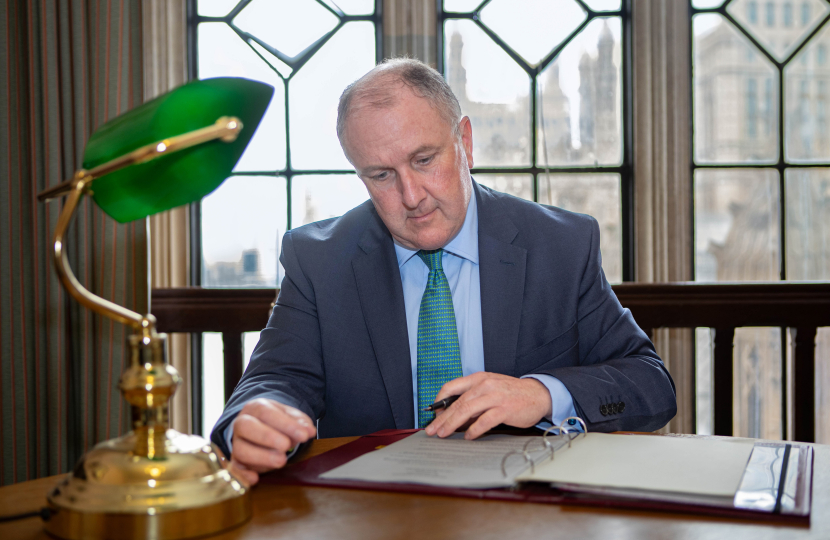
During the recent General Election campaign, I suggested that an issue that would need serious consideration over a period of time is the role of the State and the debate surrounding our rights and responsibilities as citizens. This article may be the first in an occasional series and they allude to issues that I hope to have the opportunity of raising in Parliament over the coming years.
Too often politicians are characterised as being either of the Left and therefore in favour of a BIG State or from the Right where a SMALL state is preferred. To paint such strictured pictures gives the lie that the State is static. It is not. Tide-like it ebbs and flows. Actively interventionist when required, passively observatory when it can be. Governments, and in my view erroneously, often define their success in terms of the amount of legislation they bring to the Statute Book. A casual perusal of the many bookcases in Parliament show that the volume of laws greatly increased following 1945 in comparison with earlier years. They have shown no real sign of abating. So, perhaps our first responsibility as citizens is to want Government to do less but do it better. Give more time to considering legislation and its impact. Get it right first time.
The principal role of the State is to keep the country safe and defended. However, from most people’s perspective it is the provision of services and supports, those things with which we engage most regularly, that are dominant in people’s evaluation of the effectiveness of the State. And I think the key word here is effectiveness. It is not a question of Big or Small State but effective or, as I increasingly prefer to call it, Smart. The full arsenal of AI and digital is going to have to be deployed. There will be transitional hurdles to face and surmount but that is nothing new. The Britain of the mid 21st Century is going to need a State that is fleet of foot. In order to get there it is also going to require politicians of all party persuasions to once again take up the responsibility of making the policy case for x, y or z rather than merely being a cowardly echo chamber of inbox and social media. Politicians need to have the courage to ‘make the weather’ in order to ‘turn the dial’. Lloyd George, Atlee, Thatcher, Blair all did so. They cannot be a closed chapter.
Which brings me to our rights and responsibilities. Too often the narrative has focussed on ‘I know my rights’, ‘what I am entitled to’ etc. We have a correct presumption that the State will help rather than hinder us. Will provide protections and the famous welfare ‘safety net’ below which noone can fall. But it must always provide it as a springboard, where people are able, to improve things, to resilience, independence and self-sufficiency. I hope the PM will stick to his pledge to reform welfare to ensure that work always pays. He will face internal and external opposition but not from most sensible thinking people in the country.
The State-authored, welcome and necessary interventions during COVID and the cost of living crisis has however encouraged a loss of individual independence and greater reliance on the State to solve problems perfectly within our own control and competence. The State cannot and should not do everything. To try to do so leads to the infantilising of our fellow citizens and a dependency culture to become ever more embedded. Why try to stand on our own two feet when Government will do it for us? Our ‘rights’ are, in my judgement, enhanced when we accept and deliver our ‘responsibilities’. We do have responsibilities and the State should not create an atmosphere where we can shirk them To create a one way street of expectation is profoundly unhelpful. I shall return to this theme in a subsequent article.
On a housekeeping point, I have diarised a list of Advice Surgeries held on Fridays across the constituency. If you have an issue or problem with which you think I can help please email me: [email protected]

